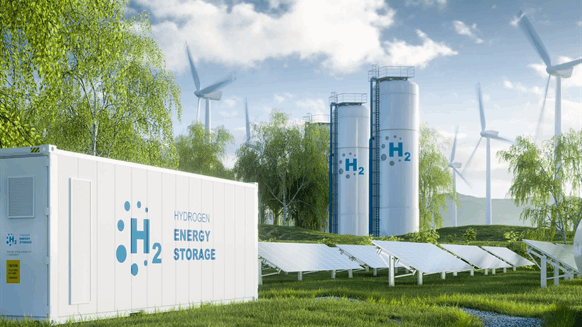EU Backs Dutch Green Hydrogen Project with Record Aid
Key Ideas
- The European Commission approved an EUR 80 million aid from the Dutch government to support a project focused on producing renewable hydrogen using alkaline electrolysis.
- The project, led by Djewels BV, a subsidiary of HyCC BV, aims to demonstrate the feasibility of producing renewable hydrogen with high current density electrodes by 2027.
- The aid includes a clawback mechanism to ensure any extra revenues generated by the project benefit the Netherlands, and the project will disseminate gained technical know-how.
- Both the EU and Dutch government are supporting various renewable hydrogen projects to align with their ambitious climate targets and green energy strategies.
The European Commission has recently given the green light to an unprecedented EUR 80 million aid from the Dutch government to support a groundbreaking project in Amersfoort, Netherlands. This project, spearheaded by Djewels BV, a subsidiary of HyCC BV, focuses on testing the feasibility of producing renewable hydrogen through alkaline electrolysis. The initiative aims to showcase the potential of generating renewable hydrogen with high current density electrodes, high-pressure hydrogen output, and minimal spatial footprint by the year 2027. The innovative project also includes a clawback mechanism, ensuring that any additional revenues generated will be returned to the Netherlands. Furthermore, the project will share the technical knowledge acquired throughout its execution. Margrethe Vestager from the European Commission praised the project for its potential to advance the EU Hydrogen Strategy and the European Green Deal objectives. This initiative is part of a broader strategy aiming to achieve 10 million metric tons of renewables-fueled hydrogen capacity by 2030 in the EU. Additionally, the Netherlands and Spain received approval for significant financial support packages for renewable hydrogen projects, highlighting a strong commitment to green energy. The Dutch aid will facilitate the construction of at least 200 MW of electrolysis capacity, contributing to the country's goal of reaching 3-4 GW by 2030. Similarly, Spain's support will focus on green hydrogen projects with a minimum capacity of 100 MW. These projects will play a crucial role in reducing carbon emissions and aligning with both national and EU climate objectives.
Topics
Electrolyzer
Renewable Energy
Technology
Innovation
Competition
Investment
Economic Development
EU
Climate Targets
Latest News
